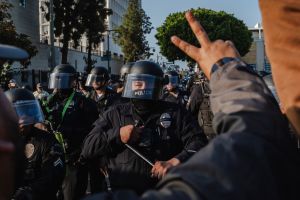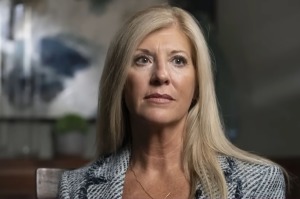Episcopal Convention to Discuss Removing Baptism Requirement for Communion
The Episcopal Church is considering changing a canon law that will allow non-baptized people to receive Holy Communion, and the resolution will be discussed at the 78th General Convention in Indianapolis when it meets July 4-12.
Resolution C040, proposed by the Episcopal Diocese of Eastern Oregon, seeks to remove Canon 1.17.7, which states that "no unbaptized person shall be eligible to receive Holy Communion in this Church." This will pave the way for Episcopal churches to freely offer Holy Communion to all who seek it, regardless of age, denomination, or whether or not they have been baptized.
One incident that inspired this proposed resolution involves a young woman who visited the diocese's St. Mark's Episcopal Church in Hood River, Ore., and told the Rev. Anna Carmichael, "I really need some support right now and I feel like it starts there." She shared with the pastor, however, that she had never been baptized, but the Rev. Carmichael said that she could not turn her away in her time of need.
"I just couldn't tell her no, I'm sorry we can't offer that to you," the Rev. Carmichael explained.
Another similar resolution, C029, that will also be proposed, calls for a special commission to conduct a study of the theology underlying access to Holy Baptism and Holy Communion.
Canon 1.17.7 was affirmed by the 2006 General Convention, which is said to have provided "a pastoral and theological understanding of the relationship between Holy Baptism and Eucharistic practice." The issue has been a long-standing one for the Episcopalian church, and was again debated at the June 2009 convention. Although the law stood, the governing committee noted that it did not assume that "this is our last word on these matters."
"It is essential to understand the doctrinal and liturgical connections between baptism and eucharist, especially in a church that has been rediscovering the centrality of baptism," the members wrote in their conclusion. "We invite the church into this work."
The Rev. Carmichael explained that there has been a conflict between actual practice and theology, and said that unbaptized people have been receiving Holy Communion already on a regular basis.
"For many of the folks out here in the diocese we have already started living into the practice, which I know gets us in a sticky situation but it's reality," she explained. "We don't check ID at the door and strangers who come up to receive communion are not asked if they have been baptized."
"We feel like it's been a lived reality for us and we imagine that that may be true in other dioceses as well," the reverend added.
The requirement for baptism before receiving Holy Communion stems from the Didache, a catechism, or written doctrine, dating from the late first or early second century, which states "… but let no one eat or drink of your Eucharist, unless they have been baptized into the name of the Lord …"
"This is our construction around this issue because Jesus never said you have to have baptism before you have dinner with me," the Rev. Carmichael argued. "So, this is our mess that we've created and sometimes I wonder in the grand scheme of all things how much this really matters. When we get to heaven is Jesus going to be more excited that we invited people or is he going to be more excited that we said you can come, but you can't?"
Those opposed to such reforms and wishing to stick to the traditional requirements for receiving Holy Communion, such as the commission that has backed the canon law in the General convention, warned that "a move toward the official communion of the non-baptized undercuts, threatens, and in the end denies basic ecumenical tenets." The members added that Anglican credibility in ecumenical conversations is threatened when practice differs from what church law dictates.
"The practice of admitting non-baptized people to the Eucharist overthrows a century of ecumenical insight and growth," the committee positioned.




























